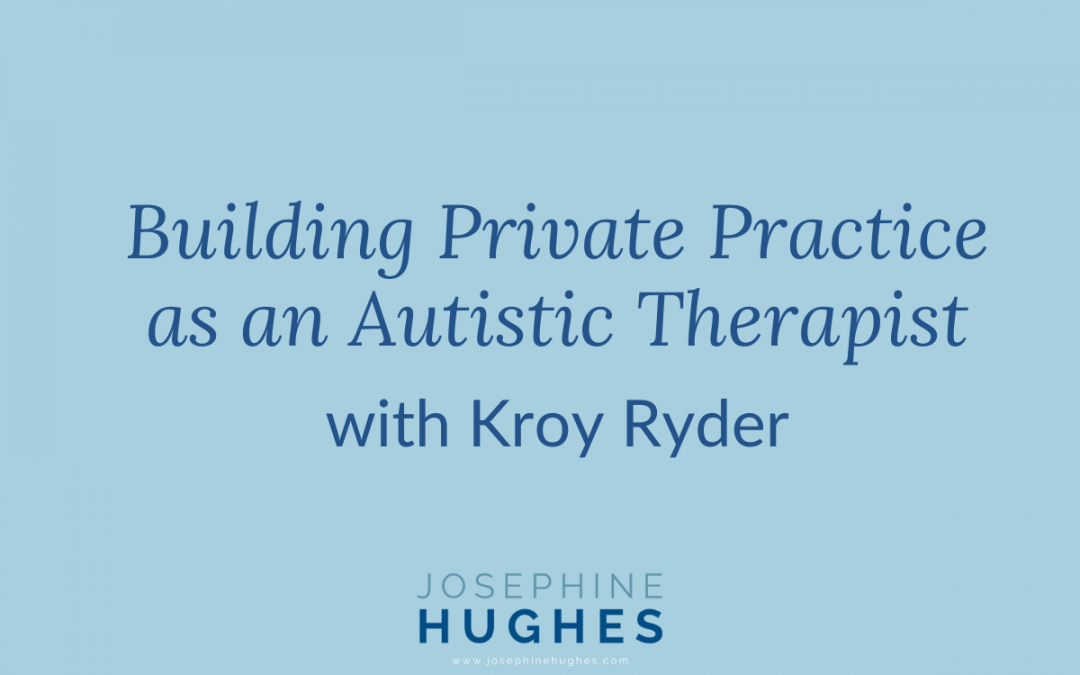What does it look like to build a successful private practice when you’re autistic?
In this episode of Good Enough Counsellors, I talk to therapist Kroy Ryder about how he went from working as a hotel cleaner to running a thriving private practice – all while navigating his late diagnosis of autism (and ADHD), doubts about belonging in the profession, and a training environment that didn’t always understand his needs.
Listen to the full conversation here:
If you would like to subscribe to the podcast, click here.
Can you really be an autistic therapist in private practice?
This is a question Kroy has had to answer for himself – both in terms of whether he was good enough to train as a therapist and good enough to run a private practice. It’s a question I know many neurodivergent therapists ask too.
In our conversation, Kroy shares how he doubted whether private practice would work for someone like him: someone who felt more comfortable watching from the sidelines, someone who struggled with note-taking, and someone who worried about getting things “wrong.”
But over time, he learned to trust that being autistic didn’t mean he couldn’t do the work – it meant he would do it his way.
Why embracing your identity can help you find your niche
Kroy didn’t set out to work with neurodivergent clients – but they found him. As he began to show up more openly as an autistic therapist, clients started to recognise themselves in his words and feel safe enough to reach out.
Now, he works primarily with neurodivergent and LGBTQIA+ clients, creating a space where they don’t have to explain or mask – because he understands from the inside.
And crucially, he’s learned how to run his practice in a way that works for his brain – with honesty, structure, and flexibility.
Small adjustments that make a big difference
From giving clients a heads-up about room changes or haircuts, to writing a profile that truly sounds like him, Kroy shares how the small details can help neurodivergent clients (and therapists) feel more at ease.
We also talk about:
- Rejection sensitivity (and what helps)
- Letting go of clients who aren’t the right fit
- How shyness can be a strength in the therapy room
- The relief of no longer trying to fit a mould
If you’re neurodivergent and doubting yourself …
Kroy’s story is a beautiful reminder that private practice doesn’t have to look one way – and that being autistic, ADHD, or dyslexic doesn’t mean you’re not cut out for this work.
If anything, it may be what helps you connect with your clients more deeply.
Looking for support that works for your brain?
In Therapy Growth Group, I work with many neurodivergent therapists who tell me the same things:
- I don’t know where to start
- It all feels overwhelming
- I keep doubting myself
That’s why I’ve designed the group to be structured, supportive, and flexible — with step-by-step plans, regular live calls, and body doubling sessions to help you take action without having to do it all alone.
Learn more about Therapy Growth Group HERE

